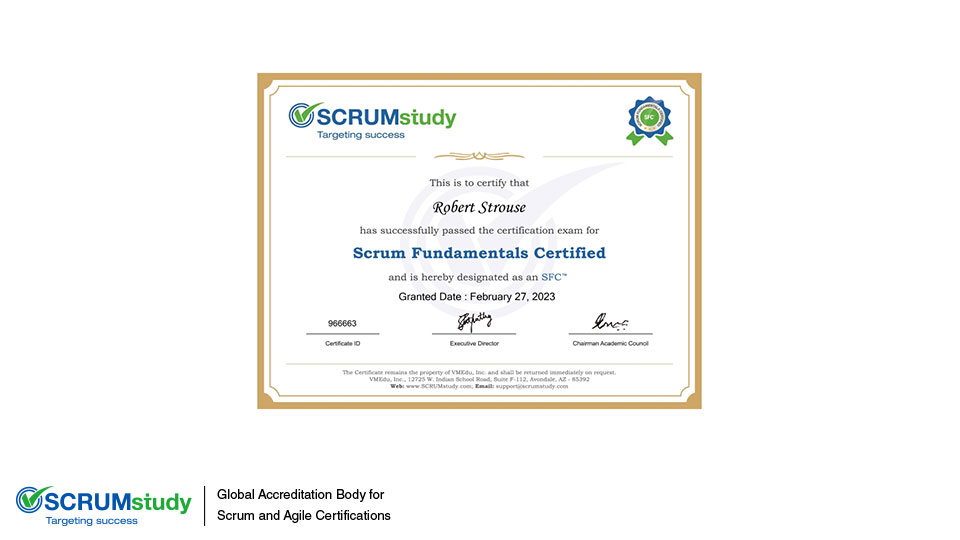Scrum Product Owner training programs
Posted by SCRUMstudy® on June 05, 2024
Categories: Agile Certification SBOK® Guide Scrum Scrum Guide Scrum Master Training
Scrum Product Owner training programs are designed to equip individuals with the skills and knowledge necessary to effectively manage and prioritize product backlogs, ensure clear communication between stakeholders, and maximize product value. These programs typically cover a wide range of topics, including the roles and responsibilities of a Product Owner, techniques for effective backlog management, and strategies for stakeholder engagement. Emphasis is also placed on understanding and applying Scrum principles and practices in real-world scenarios. By participating in such training, Product Owners can enhance their ability to guide product development teams, align product goals with business objectives, and ultimately deliver high-quality products that meet customer needs.
Product Owner mentorship is crucial for developing effective leadership in agile environments. It involves seasoned Product Owners guiding and supporting less experienced professionals in mastering the role's complexities. Mentors offer insights into stakeholder management, prioritization techniques, and product vision alignment, helping mentees navigate challenges and make informed decisions. Through mentorship, new Product Owners gain confidence in their abilities, learn best practices for agile methodologies, and cultivate a deep understanding of user needs. This guidance fosters not only individual growth but also enhances team collaboration and product success by ensuring alignment with strategic goals and customer expectations.
In the realm of Scrum, mentorship plays a pivotal role in cultivating expertise and ensuring the effective application of Agile principles. Scrum training mentorship is designed to empower practitioners by providing personalized guidance and support throughout their journey with Scrum. Experienced mentors not only impart theoretical knowledge but also share practical insights garnered from real-world scenarios, equipping trainees with the skills to navigate complexities and drive successful Agile transformations within their organizations. This mentorship fosters a culture of continuous learning and improvement, emphasizing collaboration, transparency, and adaptability as core values essential for harnessing the full potential of Scrum methodologies.
We will attempt to do a quick overview of some of the Scrum certifications that are currently being offered.
Next, let's discuss how to choose the right Scrum trainer. While it can be beneficial to find a Scrum trainer with a similar background to yours, it is not an absolute requirement. The framework and style of Scrum training can vary from trainer to trainer, so it's important to find one that matches your learning style.
The biggest positive of a formal Scrum training is that you learn everything in a controlled environment. You meet people who are also there to learn about Scrum and in case you have common background, it helps to understand the process and difficulties of implementation from outsider’s point of view. A formal training also helps you understand about the mistake which you may make due to the traditional project management concepts rooted in you.
The main purpose of any certification is to impart a common baseline of the knowledge. These Scrum certifications, compared to any other project management certifications have a very easy test. You should remember that getting a Scrum certificate is way easier than the implementing actual Scrum framework.
Scrum and Agile methodologies offer significant flexibility in implementation. However, it's crucial to maintain the core principles of the process. Project managers who modify essential elements of Scrum are often referred to as "Scrumbut." It is generally recommended to adopt Scrum in its entirety initially to fully understand its mechanics. Once you have a solid grasp of the framework, you can then make informed decisions about potential adjustments. Over time, you may realize that no changes are necessary.
You need to understand that nothing is more valuable than experience. Scrum or Agile Certification may only add some credibility and marketability to the individual.

